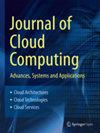基于MLP的缺失体质测试数据分类方法
IF 3.7
3区 计算机科学
Q2 COMPUTER SCIENCE, INFORMATION SYSTEMS
Journal of Cloud Computing-Advances Systems and Applications
Pub Date : 2023-07-01
DOI:10.1109/CSCloud-EdgeCom58631.2023.00031
引用次数: 0
摘要
近年来,大学生的身体健康状况已受到国家和各高校的重视。每年都要花费大量的精力进行身体健康测试,产生大量的身体健康数据。由于一些不可抗拒的原因,如输入错误的数据或学生无法参加一些体育锻炼项目,在体能测试中存在数据缺失,根据现有的加权求和规则计算总分,可能导致部分学生成绩分类不准确。为此,本文提出了一种基于缺失项体质测试数据的分类方法。该方法首先采集原始数据集,构建结构化数据集;然后,利用MLP方法构建分类器模型,对缺失项的测试数据集进行分类。最后,与GaussianNB、SVM和XGBoost构建的训练模型进行对比实验,结果表明MLP的分类效果良好,分类准确率可达93.29%。本文章由计算机程序翻译,如有差异,请以英文原文为准。
A missing physical fitness test data classification method based on MLP
In recent years, the physical health status of college students have been attached by the country and all universities. Much effort is spent every year to conduct physical health tests, generating a large amount of physical fitness data. Due to some irresistible reasons, such as entering incorrect data or students being unable to participate in some physical fitness programs, missing data exists in the physical fitness test, and the calculation of total points according to the existing rules of weighted summation may lead to inaccurate classification of some students grades. To this end, a classification method based on physical fitness test data with missing items is proposed in this paper. Firstly, the method collects the raw data set and constructs a structured data set. Then, the MLP method is used to construct a classifier model to classify the test data set with missing items. Finally, compared experiments are conducted with the training model constructed by GaussianNB, SVM and XGBoost and the results show that the classification effect of MLP is excellent, and the accuracy of classification can reach 93.29 %.
求助全文
通过发布文献求助,成功后即可免费获取论文全文。
去求助
来源期刊

Journal of Cloud Computing-Advances Systems and Applications
Computer Science-Computer Networks and Communications
CiteScore
6.80
自引率
7.50%
发文量
76
审稿时长
75 days
期刊介绍:
The Journal of Cloud Computing: Advances, Systems and Applications (JoCCASA) will publish research articles on all aspects of Cloud Computing. Principally, articles will address topics that are core to Cloud Computing, focusing on the Cloud applications, the Cloud systems, and the advances that will lead to the Clouds of the future. Comprehensive review and survey articles that offer up new insights, and lay the foundations for further exploratory and experimental work, are also relevant.
 求助内容:
求助内容: 应助结果提醒方式:
应助结果提醒方式:


